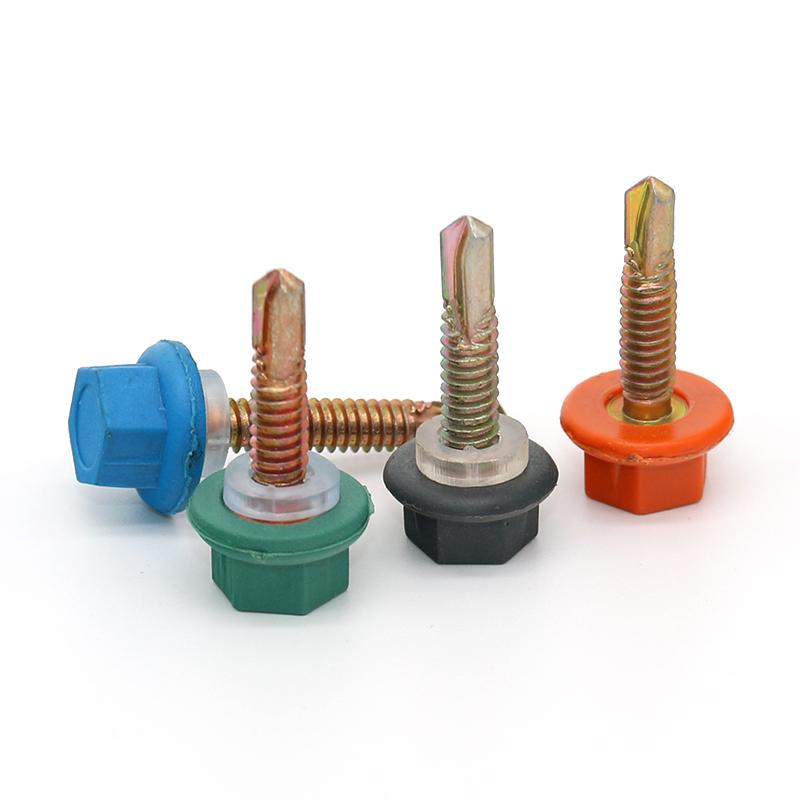Comparing Split Lock Washers and Flat Washers for Optimal Performance in Fastening Applications
Split Lock Washer vs Flat Washer Understanding Their Differences and Applications
When it comes to fastening technologies, choosing the right type of washer can make a significant difference in the performance and longevity of a joint. Among the various types of washers available, split lock washers and flat washers are two of the most commonly used options. Although both serve the purpose of distributing the load and preventing loosening, they do so in different ways and are suitable for different applications. This article explores the distinct features, advantages, and typical applications of split lock washers and flat washers.
What is a Split Lock Washer?
A split lock washer is a type of washer specifically designed to prevent loosening due to vibration and dynamic loading. It is typically made from spring steel or similar materials, and its design features a split or gap. This split allows the washer to exert a spring-like tension when compressed, effectively locking the nut or bolt in place. The internal rigidity of a split lock washer endows it with the ability to maintain pressure against the connected parts, ensuring that the joint remains tight over time.
Features and Benefits of Split Lock Washers
1. Vibration Resistance One of the primary advantages of split lock washers is their effectiveness in preventing the loosening of fasteners under vibrational forces. They are particularly beneficial in applications involving machinery and vehicles where vibrations may be prevalent.
2. Load Distribution Split lock washers help distribute the load more evenly across the surface, reducing the risk of damage to the materials being fastened.
3. Easy Installation These washers are generally straightforward to install, and their unique design allows for easy removal when necessary, making maintenance and replacement hassle-free.
4. Reusable Unlike some other types of lock mechanisms, split lock washers can often be reused in multiple applications, so long as they remain undamaged.
What is a Flat Washer?
In contrast, a flat washer is a simple, disc-shaped piece of material, usually with a hole in the middle. It is primarily used to provide a flat surface for the bolt or nut to bear against, preventing damage to the material being fastened. Flat washers can be made from various materials, including metal, rubber, or plastic, depending on the requirements of the application.
split lock washer vs flat washer products

Features and Benefits of Flat Washers
1. Load Distribution Flat washers play a crucial role in distributing the load of the fastener, reducing the potential for damage to softer materials.
2. Surface Protection They help protect the surfaces of the materials being joined from abrasion and wear, prolonging the life of both the fastener and the mating surface.
3. Versatility Flat washers are available in various sizes, materials, and thicknesses, making them suitable for a wide range of applications, from construction to electronics.
4. Ease of Use Installing flat washers is straightforward, requiring little additional tooling beyond what is needed for the fastener itself.
Which Washer Should You Use?
The choice between split lock washers and flat washers largely depends on the specific application and the requirements of the task at hand. If vibration is a key concern—such as in automotive applications or heavy machinery—split lock washers are often the preferred choice due to their locking mechanism. On the other hand, if the goal is simply to protect surfaces and provide load distribution without the need for added locking, flat washers may be adequate.
In some situations, it may even be beneficial to use both types of washers in conjunction. For instance, using a flat washer under a split lock washer can combine the load distribution benefits of both, ensuring a more secure fastening in challenging conditions.
Conclusion
Understanding the differences between split lock washers and flat washers is essential for any professional dealing with fasteners. By knowing their respective advantages and applications, you can make more informed choices that enhance the integrity and durability of your assemblies. Whether you're looking for vibration resistance or surface protection, selecting the right type of washer will lead to more successful and reliable fastening solutions.
-
Top Choices for Plasterboard FixingNewsDec.26,2024
-
The Versatility of Specialty WashersNewsDec.26,2024
-
Secure Your ProjectsNewsDec.26,2024
-
Essential Screws for Chipboard Flooring ProjectsNewsDec.26,2024
-
Choosing the Right Drywall ScrewsNewsDec.26,2024
-
Black Phosphate Screws for Superior PerformanceNewsDec.26,2024
-
The Versatile Choice of Nylon Flat Washers for Your NeedsNewsDec.18,2024










